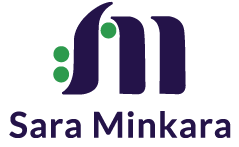When people first meet me, they may initially notice that I am a woman. Or perhaps they will note my blindness, or that I am Muslim. But the way others see me does not define me. I am all of those things, and more. Like Walt Whitman wrote, we all contain multitudes. Yet people form their initial impressions of someone new within the first seconds of meeting, and those initial impressions can be hard to disrupt. Even without realizing it, these impressions are frequently rooted in “isms.” Racism. Sexism. Ableism. Ageism. This isn’t necessarily nefarious; people naturally categorize information to help make sense of their worlds. But we all have the power to reject those assumptions, instead intentionally opening our minds to consider one another more fully as multi-dimensional human beings. And when we do, a whole new world of opportunity is born.
Whatever someone’s first impression of me may be, it becomes quickly apparent that I am a passionate advocate for honoring your own individual value and recognizing the value in others. I strongly believe that we all benefit from shifting our perspective in this way. It is part of everything I do, personally and professionally. And it has everything to do with how I grew up.
I consider myself incredibly fortunate to have been raised by parents who encouraged me to look past the narratives and perceptions surrounding disability to help us embrace my blindness. They never wanted assumptions about my value and abilities to constrain me, instead affirming and reaffirming that I had the power to define myself, both who I am and who I would become. They taught me that nothing is predetermined. And because of that, I never felt limited. While they may not have been thrilled with my choices to swim with sharks in Belize or hike in the Balinese jungle, my parents have always selflessly put aside their own concerns for my health and safety, instead encouraging me to make my own choices and become my own person. One truly transformative choice I made was to attend Wellesley as an undergraduate. I found an incredible community of friends and faculty at Wellesley. Their extraordinary example of strong and supportive female leadership really shaped me, from a shy teenager to a curious and bold leader. With the encouragement of my advisors at Wellesley and a grant from the Clinton Foundation, I founded a nonprofit called Empowerment Through Integration (ETI) to provide services for children with disabilities living abroad.
I went on to graduate school at Harvard’s Kennedy School of Government. The Kennedy School was such an incredible environment to learn and grow in. I learned leadership concepts that I have incorporated into my own style and vision and was inspired by my fellow students and their commitment to social change. Harvard provided a testing ground for my approach to inclusive education, and a platform for me to amplify my voice. Professors and students alike respected my contributions and believed in my vision. Throughout my time at Harvard, I continued to develop and grow ETI. And when it felt like ETI was taking off, I unfortunately needed a bone marrow transplant.
I learned to shift my perspective. What first seems insurmountable, may in fact be a blessing and an opportunity. It was so for me. Because the bone marrow transplant necessitated a full year of quarantine, I had plenty of time to consider my situation. I couldn’t help feeling disappointed that my journey was paused because of my illness and treatment. But then I realized something: my personal journey was not stuck. It was evolving. As we all evolve.
Every experience changes us, and changes what we have to offer. During that year, although I couldn’t leave my home, I was busier than ever. Growing and developing ETI, preparing to hit the ground running when I was healthy enough to do so. Once I recovered, I continued to build ETI but also yearned to bringing inclusion to every space and sector. This fueled the creation of Sara Minkara LLC , which brought my vision of spreading Authentic Leadership and inclusion on all fronts to life.
While I currently serve as the Special Advisor for the Office of International Disability Rights in the State Department. I will always strive to bring inclusion to all spaces.

